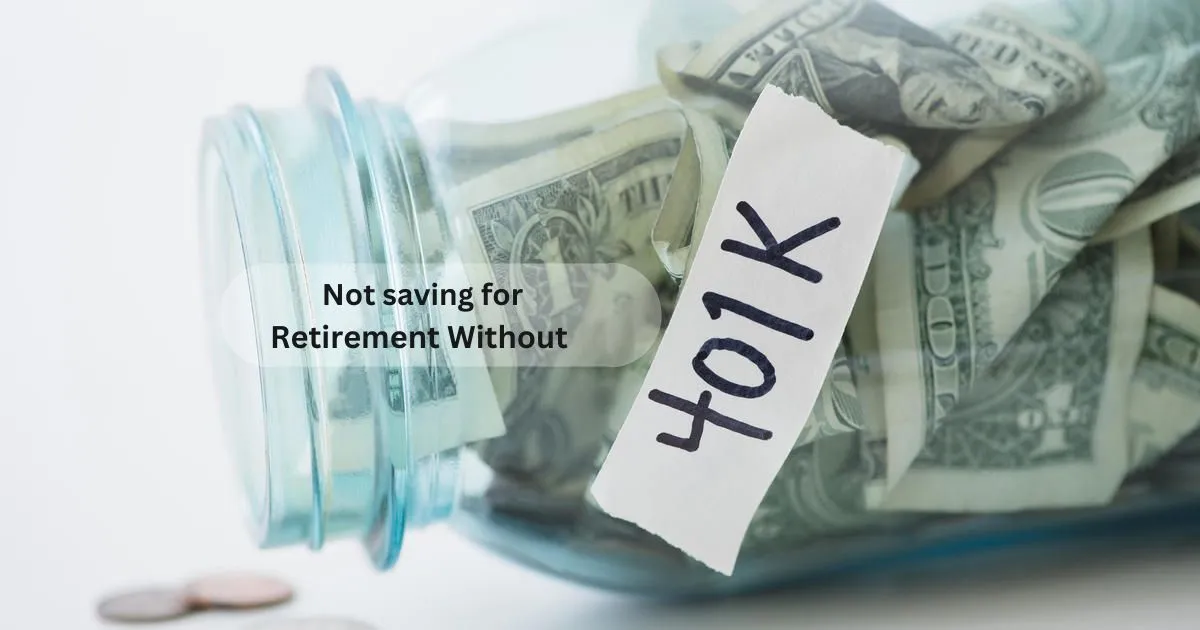When you turn employers, it’s vital to preserve your nest egg intact. without careful attention, a spread of taxes and expenses should appreciably reduce your retirement financial savings. be sure to take a near look at 401(k) vesting schedules and ready intervals earlier than making any foremost profession movements.
Here are some common 401(k) mistakes that job hoppers make:
- Leaving Before You’re Vested
- Not Saving During the Waiting Period
- Saving Less When an Employer Matches Less
- Not Saving When Your Employer Doesn’t Offer a 401(k)
- Cashing Out Your Old 401(k)
- Failing to Shop Around for the Best Tax-Deferred Account
- Making Rollover Mistakes
Leaving Before You’re Vested
you can always take your 401(okay) contributions with you when you leave a job. however you may not be capable of holding your corporation’s 401(k) suit or earnings-sharing contributions unless you’re vested inside the plan.
Almost 45% of 401(ok) plans offer immediate vesting for matching contributions, in line with a survey by means of the Plan Sponsor Council of america.
The rest require you to live with the organization for some years earlier than you could preserve any of the match or can help you keep a progressively increasing proportion of the suit based totally for your job tenure.
“If you are deciding on to leave and you are near the end of the vesting schedule, you may be leaving cash on the table,” says Tom Orecchio, an authorized economic planner for Modera Wealth control in Westwood, New Jersey.
Find out when you become vested inside the plan and don’t forget sticking around if the date is extraordinarily near.
Not Saving During the Waiting Period
Most of the people of businesses permit new personnel to make contributions to their 401(okay) at once upon becoming a member of the company, in step with an analysis of about 1,500 retirement accounts administered through vanguard.
A few employers require you to wait between two and 3 months or maybe an entire year before you may start saving in the 401(ok) plan.
“If you’re now not part of the profit-sharing or 401(ok) plan, you do have other alternatives which include IRA and Roth IRA money owed,” says Jerry Korabik, an authorized financial planner for Savant Capital control in Rockford, Illinois.
don’t stop constructing your nest egg just due to the fact the corporation’s professional plan is closed to you.
Saving Less When an Employer Matches Less
A 401(k) in shape is an effective incentive to keep for retirement. but, almost a quarter of 401(okay) members don’t shop sufficiently to max out that health, in step with a 2024 forefront observation, and 13% save precisely enough to get the maximum possible organization contribution.
But really the suit threshold won’t be enough for a comfy retirement.
“Some people most effectively shop whilst they may be paid to keep, but that shouldn’t be the only cause you’re doing it,” says William Cuthbertson, an authorized financial planner for Fiscalis Advisory Inc. in San Juan Capistrano, California. “people need to be saving 10% to fifteen% in their salary, starting at a younger age.”
So, if your new organization offers smaller matching contributions, you need to make up the difference by using savings greater in your very own.
Not Saving When Your Employer Doesn’t Offer a 401(k)

Except you activity-hop solely amongst big or specially beneficent employers, you may sooner or later locate yourself working for an agency that doesn’t provide retirement blessings.
At best , approximately two-thirds of personal industry workers had the right of entry to a defined contribution plan like a 401(k) account in 2023, in keeping with the Bureau of exertions records.
If you are among the workers without getting admission to a place of business retirement plan, it’s essential to hold savings in an IRA or different account, even in years when you’re not getting any help from your enterprise.
Cashing Out Your Old 401(k)
About forty% of retirement savers cash out their 401(ok) when they depart or exchange their task, in step with the Harvard business evaluation.
That can be a high priced mistake. no longer most effective does it mean much less cash can be available in retirement, but it can also result in a significant tax bill.
Workers who cash out traditional 401(ok) accounts should pay earnings tax on that amount, and if they’re more youthful than fifty five, typically face a 10% early withdrawal penalty.
An employee in the 24% tax bracket with a 401(ok) stability of $3,000 might receive simply $1,980 after taxes and consequences if they cashed out before retirement.
Failing to Shop Around for the Best Tax-Deferred Account
There are numerous approaches to maintain the tax-deferred advantages of your 401(k) when you leave an activity. you may deposit your cash in your former company’s plan, roll it into an IRA or switch your balance into your new organization’s 401(okay) plan.
“You want to compare the available funding options and the expenses of your contemporary and previous plan,” Korabik says.
occasionally 401(ok) plan sponsors are able to negotiate low funding charges for contributors. However, if the 401(k) plans available to you bring high prices, recall moving your nest egg into an IRA with lower fees and more investment alternatives.
Making Rollover Mistakes

Once you decide to transport your money, take care to avoid taxes and consequences. Ask your former organization to directly transfer your savings to the economic organization hosting your IRA or your new organization’s retirement plan.
This manner, you may keep away from having income tax withheld. Plus, you do not need to worry about the 60-day time restriction for depositing the whole balance, consisting of the amount withheld, into a brand new tax-deferred account before additional taxes and penalties can be implemented.
However, don’t forget leaving behind any enterprise inventory out of your former corporation, which gets special tax treatment while held in that corporation’s 401(k) plan.
If you’re near retirement, it’s well worth noting that retirees can begin taking penalty-unfastened 401(ok) withdrawals at age 55, however best from the 401(ok) account from the job they simply left
In any other case, they must wait until age fifty nine 1/2 to take IRA withdrawals or 401(k) withdrawals from accounts left with previous employers or face the 10% early withdrawal penalty.
